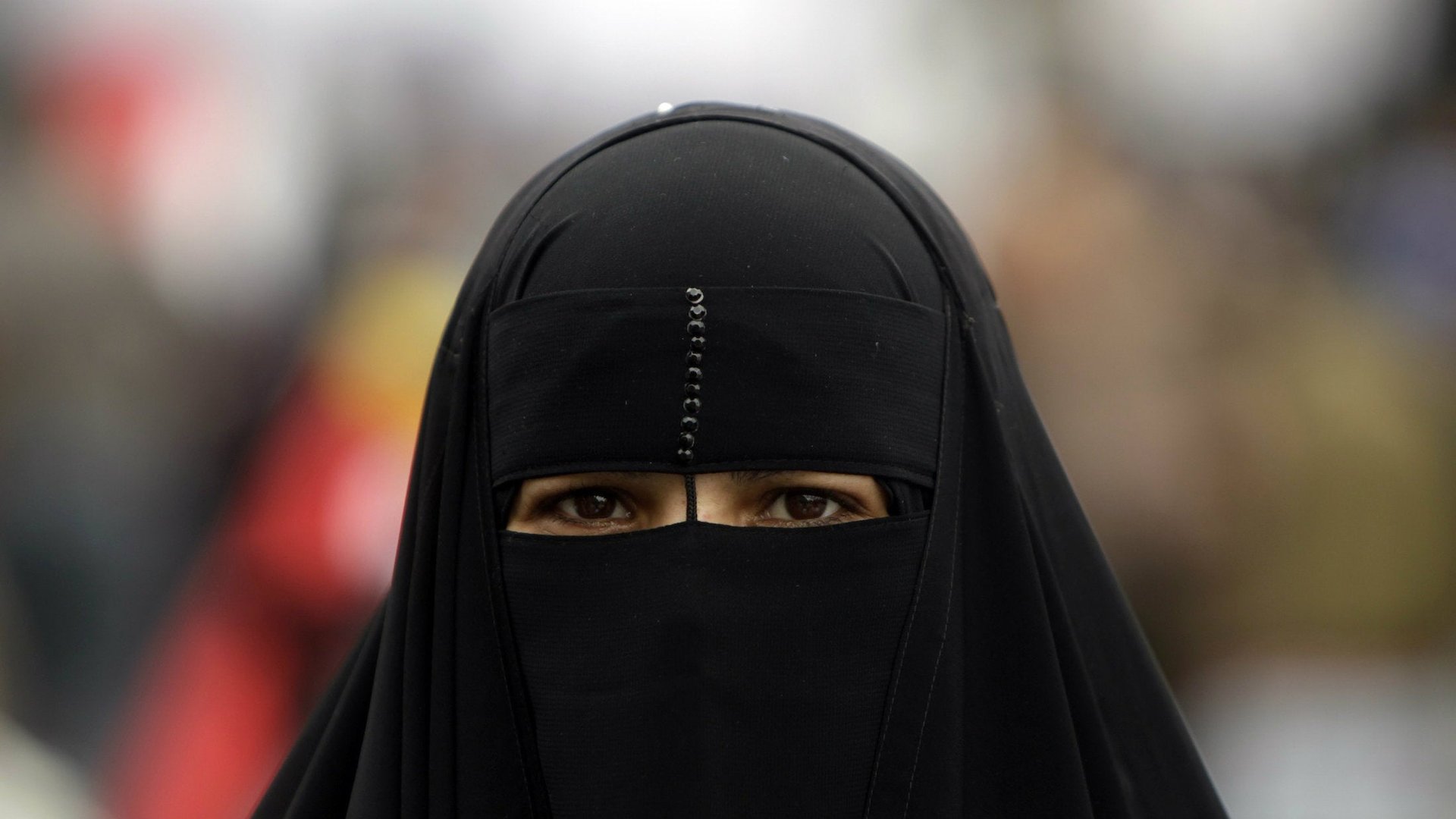Egyptian lawmakers want to ban Muslim women from covering their faces
Egyptian lawmakers are pushing for a ban on the niqab, a veil worn by women that covers most of one’s face, in what has become a fight over personal liberties and the government’s attempt to control religion in Egyptian society.


Egyptian lawmakers are pushing for a ban on the niqab, a veil worn by women that covers most of one’s face, in what has become a fight over personal liberties and the government’s attempt to control religion in Egyptian society.
The pro-government Egypt Support Coalition, a group of lawmakers within parliament, told local media that it is drafting a bill to present to parliament that bars Muslim women from wearing the veil in public places or in state institutions. “We seek to spread moderate Islam,” Amna Nuseir, a member of the group told Gulf News. “The niqab is not an Islamic duty.”
The niqab, a symbol of rising Islamic conservatism to some, has been a source of tension for years. Authorities ruled that American University’s satellite campus in Cairo could not ban women from wearing the veil in 2007. But in 2009, Egypt’s oldest university, al-Azhar, banned women from wearing the niqab in classrooms and dormitories. Other universities prohibited women from wearing the veil during exams on the grounds that it could facilitate cheating.
A recent ban on the niqab at Cairo University was expanded this month to include female staff at the school’s teaching hospitals and medical departments. In October, university officials said female teachers were not allowed to wear the veil while lecturing. Upscale venues in Cairo have barred women wearing the niqab from entering on security grounds, claiming that it obscures one’s identity.
France, and more recently Chad, as well as other countries have also banned the face-covering veil.
Critics say recent measures against the niqab in Egypt are part of president Abdel Fattah el-Sisi’s crackdown on potential supporters of the Islamist group, the Muslim Brotherhood, which was ousted when el-Sisi replaced former president Mohamed Morsi in 2013. (El-Sisi has positioned himself as a secular leader, in contrast to the Muslim Brotherhood-backed Morsi.)
Moves against the niqab may also be part of the government’s campaign to influence how Islam is practiced in the country. Last year, El-Sisi called for Egypt’s need for a “religious revolution” to prevent the spread of extremism.
“When Sisi talks about religious reformation, he wants religion to sound sensible and relevant,” H.A. Hellyer, a fellow at the Atlantic Council in Washington, told Newsweek in February. “But he also wants it as much as possible to be a tool of the state.”